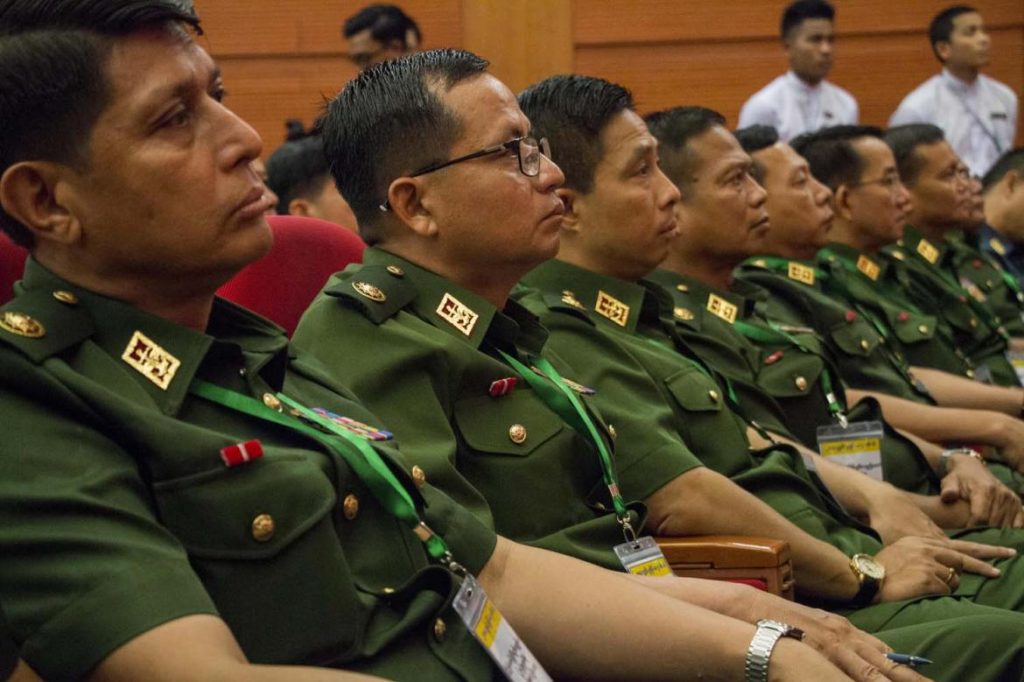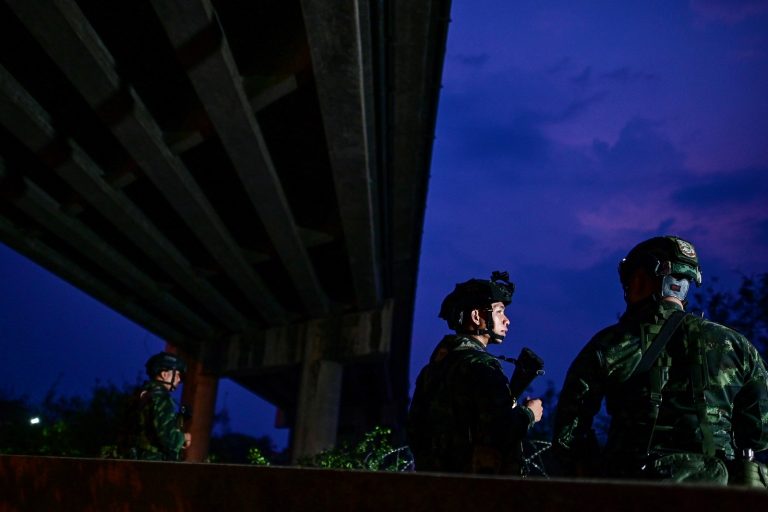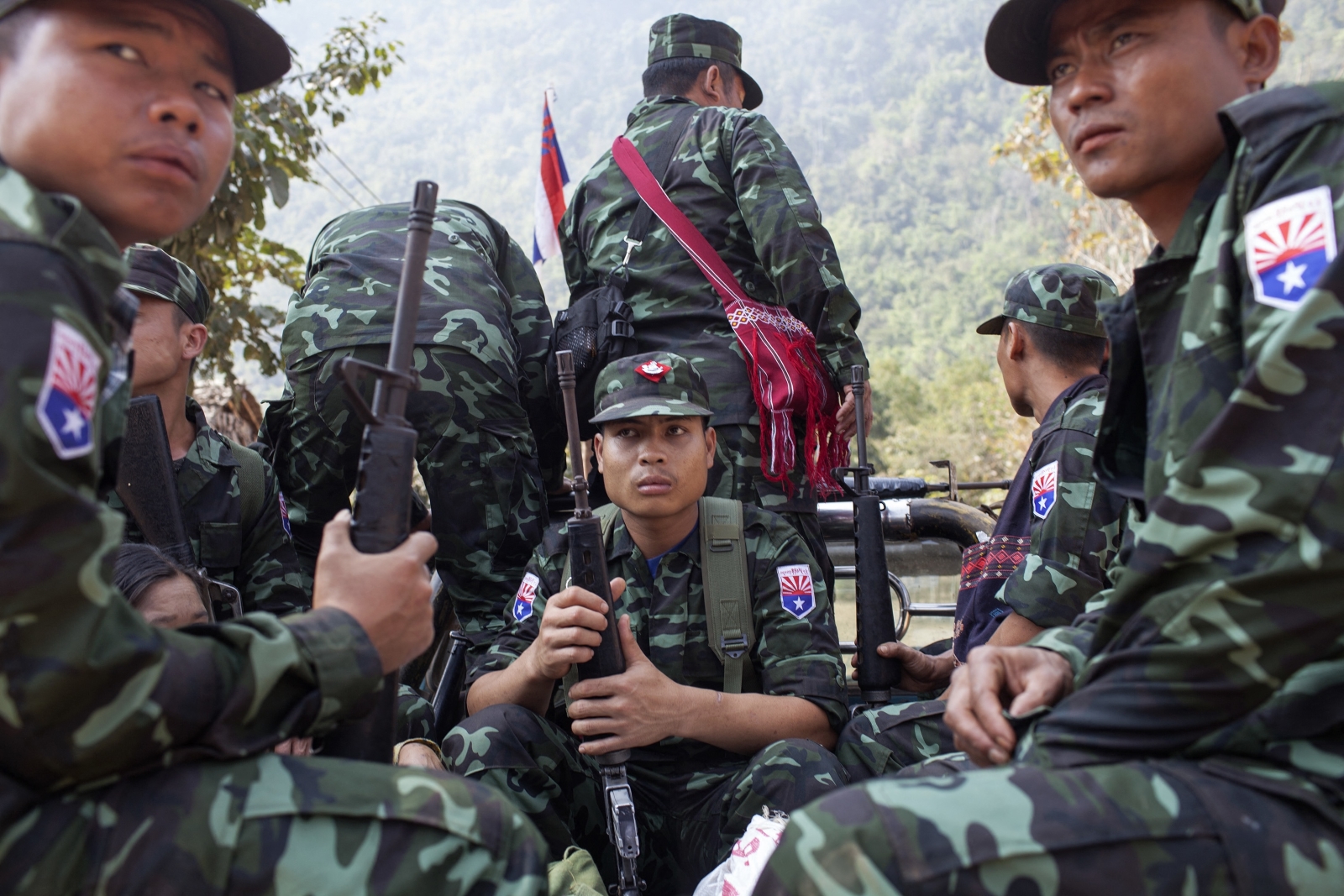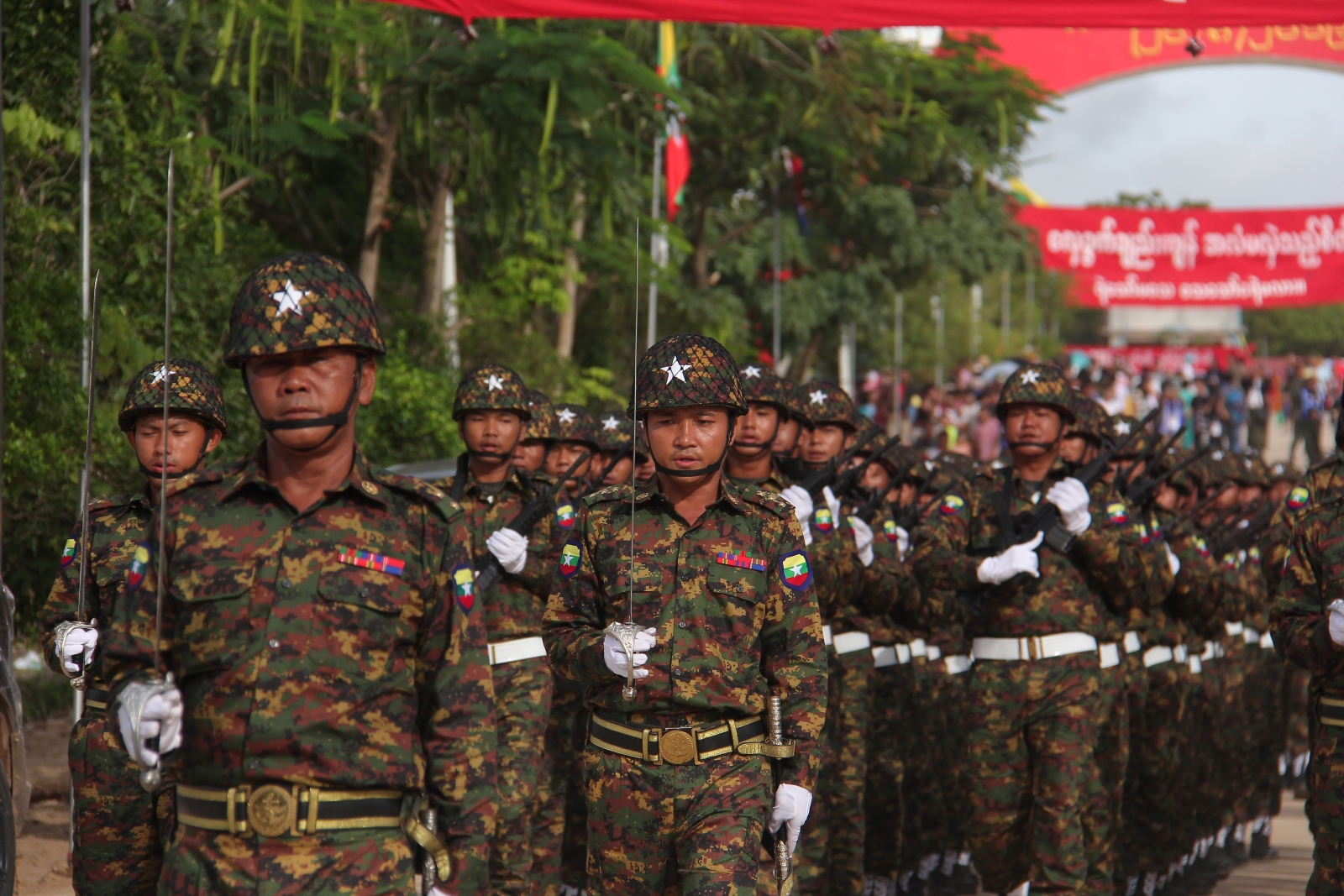A speech by Senior General Min Aung Hlaing has highlighted the rigid inflexibility of the Tatmadaw’s pursuit of peace on its terms.
By SITHU AUNG MYINT | FRONTIER
THE MUCH-DELAYED third session of the 21st Century Panglong Union Peace Conference convened in Nay Pyi Taw on July 11. The opening ceremony heard speeches from State Counsellor Daw Aung San Suu Kyi, Tatmadaw Commander-in-Chief Senior General Min Aung Hlaing, Karen National Union chairman Saw Mutu Say Poe and the deputy chair of the Arakan National Party, Daw Aye Nu Sein. The Tatmadaw leadership has a critical role in the peace process and its attitude was reflected in Min Aung Hlaing’s speech. In light of his comments, is there a favourable climate for peace?
As usual, the senior general delivered a long speech based heavily on history. First, he tried to explain that the emergence of ethnic armed groups and civil conflict was not because of the Tatmadaw. Such accusations were dangerous for the pursuit of peace, Min Aung Hlaing said. He also said that the Tatmadaw acted only to protect the administrative mechanism of the government and the lives, property and interests of the people – a comment that is not completely true.
Since 1948, when Burma gained independence, the country has had 14 years of parliamentary democracy (including two years of a caretaker government under General Ne Win), nearly 50 years of military dictatorship and seven years of semi-democratic government since the transition began with the 2010 election. The civil conflict involving ethnic armed groups that occurred immediately after independence was the responsibility of the then parliamentary government.
The fighting involving ethnic armed groups that occurred after Ne Win seized power in 1962 was the responsibility of the dictators who exercised state power through the Tatmadaw or the Tatmadaw itself. It is far from the truth to claim at the moment that the fighting between the Tatmadaw and the Kachin Independence Army is only occurring because the Tatmadaw is protecting the “administrative mechanism” of the government, and therefore the conflict is the responsibility of the National League for Democracy.
Support more independent journalism like this. Sign up to be a Frontier member.
In his speech, Min Aung Hlaing also rejected the arguments of armed groups that have refused to sign the Nationwide Ceasefire Agreement on the grounds that they had already entered into bilateral ceasefire agreements. He reiterated that they must sign the NCA for the peace process to move forward.
“The government and the Tatmadaw are actively leading the peace process today not because we are weak, but because we are committed to [the] interests of [the] state and national ethnic people,” he said, adding that if all the groups that genuinely wanted peace observed the NCA then the sound of guns would be silenced.
“All must control their own men, instead of giving groundless reasons,” he added, in comments directed to non-signatories of the NCA.
The comment that the government and the Tatmadaw were not working for peace “because we are weak” caused disquiet among ethnic minorities and other groups, which regarded it as a threat.
In his speech, Mutu Say Poe spoke of the important link between the peace process and constitutional reform. The NLD has also recently raised the issue of amending the constitution. Min Aung Hlaing referred to the issue in his speech, acknowledging the link between the peace process and changing the constitution. He said amendments to sections of the constitution had extended the rights of the states and regions, but added that any further changes would need to be based on procedures outlined in the charter. It was important to ensure that the 48 fundamental principles of the state enshrined in the constitution were maintained, he said.
What Min Aung Hlaing meant is that any political agreements that emerge from the peace process will only be approved as amendments to the constitution if they have the support of more than 75 percent of MPs in the Pyidaungsu Hluttaw – in which appointed Tatmadaw MPs hold 25 percent of the seats – and in some cases, by a national referendum.
Of the 48 fundamental principles listed in the constitution, section 6(f) states that it is a consistent objective of the union for the Tatmadaw to participate in the national leadership role of the state. The Tatmadaw shows no indication of wanting to relinquish that role.
Min Aung Hlaing said he wanted the peace process to be completed in 2020, warning that if the target was not met there was a danger of external influence and manipulation that would weaken the trust and understanding already achieved.
The senior general said in his speech that the Tatmadaw was the only organisation in the country that represented its 52 million people. There must only be one armed organisation in the country and it is the Tatmadaw, he said, in another comment directed at ethnic armed groups.
The speech by the senior general highlighted the Tatmadaw’s rigid insistence on peace at its terms, rather than through an agreement reached by negotiation and compromise.







